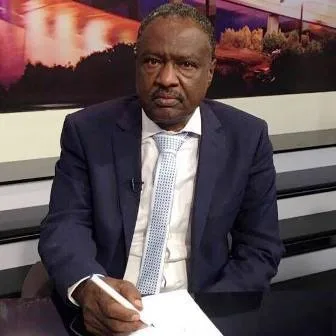The Mo Ibrahim Prize and Sudan

Rashid Abdel Rahim
Since 2006, the Sudanese billionaire and telecommunications investor Mohamed Ibrahim, popularly known as Mo, has dedicated an annual prize to African leaders who have demonstrated good governance and sound leadership during their time in office.
The prize amounts to five million dollars, plus an additional $200,000 annually for life.
Recipients of the prize have included Nelson Mandela and Botswana’s President Festus Mogae for his fight against AIDS in his country. It was also awarded to Namibia’s President Hifikepunye Pohamba for overcoming developmental challenges in his nation.
These are countries that have received balanced media coverage within the continent for the events that took place there.
Mo stipulates that the prize is awarded only when peace and development have been achieved in the recipient’s country.
As an investor in Africa, he awards the prize to former presidents, which might serve as an incentive for leaders to treat investor Mo favorably in hopes of winning the valuable prize.
Mo requires peace and development in the relevant country as a condition for awarding the prize.
Since 2006, Sudan has witnessed political and economic stability, particularly following the start of oil exports.
All these years since the prize was launched, Mohamed Ibrahim (Mo) has embodied the Sudanese proverb that the distant one finds shade while the close one is bypassed.
Sudan has seen neither financial contribution nor mobilization of Mo’s international clout or influence in service of his own country. He has the means to allocate funds for his people—those suffering in Sudan and across many sectors—independent of governments and rulers, especially if he believes they do not meet his criteria.
In the most recent session of the prize, held last week in the Kingdom of Morocco under the patronage of His Majesty King Mohammed VI, the prize hosted the head of “Samood” (Resilience) Abdullah Hamdok and Yasir Arman—neither of whom has a record of achieving any of the prize’s stated goals. In fact, Hamdok’s tenure saw a stark economic decline, far removed from development and peace. He ceded positions of power to Hemedti, enabling him to dominate the economy and the so-called peace process, which ultimately led to the loss of vast resources, especially gold.
His rule was marked by soaring prices, scarcity of goods, rising inflation, and a plummeting national currency.
As for the second guest, Yasir Arman, his history is stained with Sudanese blood through his involvement in John Garang’s rebellion. Later, he politically supported Hemedti—one of the main instigators of war in Sudan—offering him advice and political direction.
“Samood” has not been a model of good governance or development.
Mo’s financial, political, and international influence on the continent has, unfortunately, turned into support for those who fight the Sudanese people, kill its citizens, loot both public and private assets, and seek to establish a despotic and racist regime ruled by family and tribe. His influence and wealth have become instruments of a grave betrayal of the homeland, a denial of its grace, an aid to its enemies, and a deliberate withholding of its potential from serving its people.
Shortlink: https://sudanhorizon.com/?p=5929

